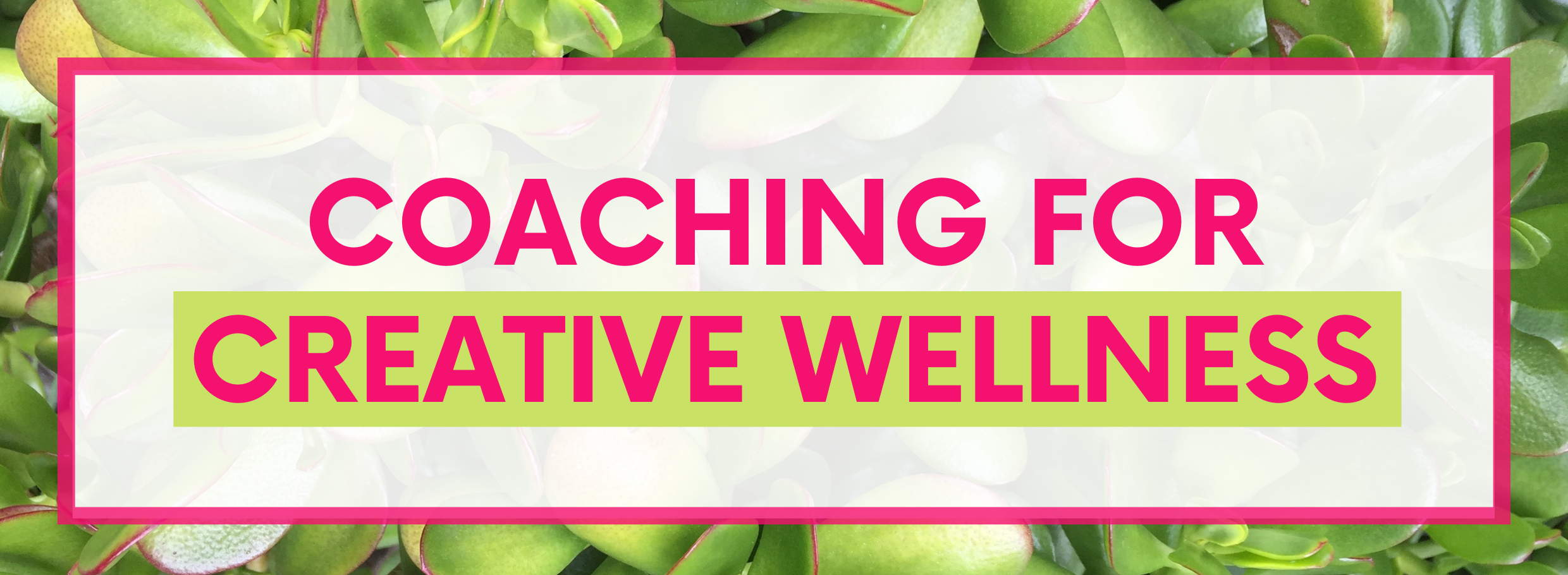4 Compassionate Mindset Shifts Around Productivity (Part 1)

The traditional definition of productivity is rooted in hustle culture, worth being attached to work, and productivity itself being inherently valuable. But what if you’re accomplishing isn’t meaningful to you, or worse, depletes your energy so badly that you’re not able to feel like a whole person, that’s not actually productive, and it definitely isn’t kind to yourself.
I used to be very hooked into this idea, and so I would read every productivity article I could get my hands on. The cycle of over-researching, getting overwhelmed, and not implementing what I was learning didn’t serve me well, but the biggest issue I found with much of this productivity writing is the implication that doing the work is more important than anything else. I’m all for working more efficiently, and many of the tips are helpful, but we can’t overlook the fact that we have needs, energy cycles, and bodies that are not just inconveniences!
If you’ve been around here for any length of time (or if you haven’t, welcome!), you know that I’m very pro-rest, but that doesn’t mean that I’m anti-productivity. As creative people, for most of us, our work is a place that we find purpose and meaning in our lives, so being productive is necessary to facilitate that, but it’s a delicate balance between structure and flexibility to make sure that the way we work truly feeds us.
With that goal in mind, I’ve been exploring the idea of compassionate productivity: working in the way that’s most effective for you personally, takes your energy cycles into account, and also prioritizes feeling your best. (Yes, feeling good and being productive can coexist!)
As I experiment with my schedule and deepen my understanding of this idea, I’ve been asking people what the word “productivity” means to them. I’ve gotten a lot of really interesting answers!
Some people think of it in the traditional American hustle mindset way (getting a lot of things done), others think of it in a more intentional way that’s personalized to themselves, and some completely bristle at the word because it brings up a lot of negative associations with micromanaging or factory work (literal, physical production).
So, clearly, everyone has their own definition of and opinions about productivity. Though I’ve worked for years at shifting toward a more holistic and compassionate approach, those harsher mindsets are still baked in (thanks, Midwestern work ethic, farmer lineage, and music school culture) and do come up for me, thankfully less frequently than they used to.
Even if you have a “good” relationship with productivity, you might find that some of these beliefs might ring true for you, or still pop up occasionally. Or, it may not have occurred to you to look at productivity in a different, more compassionate way - it certainly didn’t occur to me until I was blindsided by burnout.
In any case, having some reframing mantras ready when negative thoughts about productivity pop up can only be helpful. Here are the first 4:
NEGATIVE BELIEF 1:
Needing or wanting to rest instead of working or “being productive” means that I’m lazy.
REFRAME/MANTRA:
Rest is actually a key part of my job!
This belief can be especially harmful if you believe that you’re never allowed to rest. Have you ever gotten less done than you’d hoped, then vowed to take a day off, but felt so guilty about the undone work that you don’t even feel replenished from the rest? 🙋♀️I sure have! This is why I have my relaxation mentor to set a good example for me. 😉😻
The irony of this is that true rest, the kind that replenishes your energy, is the thing that actually fuels your work. Energy goes in cycles - we don’t have and shouldn’t expect to have unlimited energy. Once you accept that, it frees you from the struggle against your own nature / biology.
Frustratingly, the work will never completely get done - there are always more new things to do - so it’s okay and essential to set boundaries on work time that allow for rest. Making space for the rest you need is something we focus on in creative coaching, which allows my clients to begin to recover from burnout and bring supportive practices back into their lives.
NEGATIVE BELIEF 2:
I didn’t get enough done today, and that means I’m doing a bad job/I am bad.
REFRAME/MANTRA:
I did my best and got as much done as I was able to, which is good enough for today. I’ll try again tomorrow.
This one can be really tender, and really ingrained, especially for us in America, where identity can be so tied to profession. It can be extra tricky for people who do creative work, because, yes, our work really matters to us, for good reason - it’s a way of expressing our identities and creating meaning and purpose in our lives.
The real trouble comes from fully equating your work with your worth as a human. If you suddenly aren’t able to work (such as during this pandemic?), does that mean you are no longer a good and worthy person? Of course, most of us would say no, who we are is more important than what we do, but this belief can still lurk there under the surface. For more on this topic, I loved this episode of Jocelyn K. Glei’s podcast Hurry Slowly: Who Are You Without the Doing?
NEGATIVE BELIEF 3:
There’s one right way of working that’s most productive, and we should stick to that.
REFRAME MANTRA:
I can work in the way that is best for me, my energy level, and my needs. That may change from day to day, and from hour to hour, but I can adapt as needed.
Each of us is a different person, with different needs, and even your individual preferred way of working may change over time, since your needs change and shift.
We’re always allowed to question our assumptions, although they’re hard to question if they don’t make it into your consciousness! For example, many people, when they first start working for themselves, feel like they have to stick to the 9-5, plow through with few breaks model of working. However, that schedule was originally developed for factory workers and ultimate efficiency, not for nurturing the energy level of each working human.
Maybe you work best in the morning, taking the afternoon off, and returning to work more in the evening? Maybe you work best with more frequent breaks? Maybe one of those strategies works well one day, but not the next?
Don’t be afraid to experiment with the structure and environment of your workday, it might be a very welcome change! Having more tools in your toolbox, so to speak, is really helpful in being able to adapt and get more done while still feeling good.
NEGATIVE BELIEF 4:
I never get enough done and I’m always behind.
REFRAME/MANTRA:
Everything that needs to get done will get done, and whatever is happening is actually the right timing.
It’s so easy to be stuck in a scarcity mindset about time. Does this sound familiar?:
“Oh no, it’s already 3pm, I was planning on having X, Y, and Z done, and I’m not even done with X yet!”
This is often followed by a downward spiral into panic, and maybe even procrastination from the overwhelming feeling of impossibility of achieving your goals for that day. I’ve been there, too!
A lot of the feeling of being behind is just that, a feeling, brought on by a certain (probably too high) set of expectations for what you can accomplish. If you adjust those expectations to a more realistic amount of work, you might even get more done, because now you’re feeling ahead of the game instead of stressed about being behind!
Don’t worry about what others are doing with their time, or where they appear to be - accepting what you can do and truly being okay with that will make you feel like time is no longer your enemy.
If you need support around reframing these mindsets, or finding ways to restructure your workday to fit your needs so you can get a lot done without depleting all of your energy, let’s talk!
Sign up for a free discovery call below so you can avoid burnout and replenish your energy that you can put toward creating the work that makes you feel most aligned with your goals and your best self!
I hope that these reframes are helpful for you - there’s another installment coming next week!
What does the word “productivity” bring up for you? Does it change when you add the word “compassionate” in front? I’m super curious, let me know in the comments!
Pianist and composer




